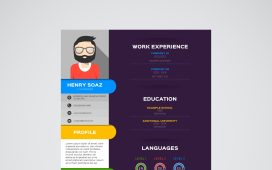How To Choose a Career Path, Selecting a career is a pivotal decision. It’s essential to align your passions, skills, and values with potential career paths.
Self-Assessment
Understanding your interests, strengths, and personality is crucial. What activities energize you? What are you naturally good at? Reflect on your values and work environment preferences.
Explore Career Options
Explore and evaluate potential career paths by considering factors like job market trends, earning potential, and work-life balance. Seek insights from professionals in various fields to gain firsthand knowledge.
Education and Skills
Assess your educational background and identify any additional qualifications needed. Develop relevant skills through courses, internships, or volunteering.
Set Goals
Establish short-term and long-term career goals. Create a roadmap to achieve them, including necessary steps and timeframes.
Gaining Experience and Building Your Network

Practical experience is invaluable when choosing a career path. Internships, part-time jobs, or volunteer work can provide firsthand exposure to different industries and roles. These experiences help you confirm your interests, develop new skills, and build your professional network.
Networking is crucial for career advancement. Attend industry events, connect with professionals on social media, and join professional organizations. Building relationships can open doors to new opportunities and provide valuable mentorship.
Consider Your Financial Situation
While passion is essential, it’s also important to consider financial stability. Research salary ranges, job market demand, and potential career growth opportunities. Create a realistic budget to understand your financial needs and how different career paths align with your financial goals.
Be Open to Change
Career paths are dynamic and subject to change. Embrace new opportunities and prioritize continuous learning to stay competitive. Remember, your ideal career is unique to you. Take your time, explore different options, and trust your instincts to make informed decisions.
Overcoming Decision Anxiety
Deciding on a career path can be daunting, and it’s natural to feel uncertain. To manage this, break down the decision-making process into smaller steps. Research your options, seek advice from mentors or career counselors, and trust that your career path can evolve over time. Ultimately, choose a path that aligns with your passions, values, and long-term goals.
By following these steps and staying open-minded, you can increase your chances of finding a fulfilling and rewarding career.
The Impact of Technology on Career Choice
Technology is reshaping the job market, creating new opportunities and transforming traditional roles. It’s essential to consider how technology aligns with your career goals. Some fields, like artificial intelligence, data science, and cybersecurity, are experiencing rapid growth.
However, technology is also automating certain tasks, which may impact job roles in various industries. It’s crucial to stay updated on technological advancements and develop skills that complement automation.
Lifelong Learning and Career Adaptability
The job market is constantly evolving, making lifelong learning essential. Technology, globalization, and economic shifts necessitate continuous skill development. Stay curious, explore new areas of interest, and be open to acquiring new knowledge and skills.
Career adaptability is key to navigating changes in the workforce. Be prepared to embrace new challenges, take on different roles, and potentially change industries. Flexibility and a growth mindset will help you thrive in a dynamic job market.
Seeking Professional Guidance

Career counselors, mentors, and coaches can provide valuable guidance throughout your career journey. They can help you identify your strengths, set goals, and develop a career plan. Utilize these resources to gain insights and support.
Remember, choosing a career path is a personal decision. There’s no right or wrong answer. The most important thing is to find a career that aligns with your passions, values, and long-term goals. By carefully considering your options, gaining experience, and staying adaptable, you can build a fulfilling and successful career.
Ultimately, the key to a fulfilling career is finding a balance between your personal aspirations and the demands of the job market.
Choosing a career is a journey, not a destination. Be open to exploring different options and adapting your plans as needed. Continuously develop your skills and stay informed about industry trends to ensure long-term career success.







